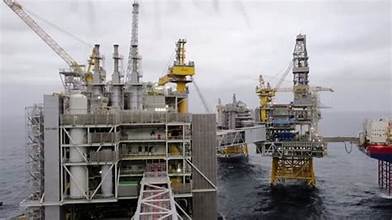Norway has suspended its highly controversial deep-sea mining project, which planned to open up its seabed for commercial-scale mining of precious metals.
The Norwegian government had initially planned to allow companies to mine an area of 280,000 square kilometers (108,000 square miles) of its waters—an area larger than the UK—seeking valuable minerals like lithium, scandium, and cobalt, which are crucial for green technologies. However, this plan was blocked after the Socialist Left Party threatened to withhold support for the government’s budget unless the first licensing round, scheduled for 2025, was canceled.
Environmental and Political Backlash
The deep-sea mining project had faced strong opposition from environmental scientists and several countries, including France, Germany, Brazil, and Canada, due to concerns about its potentially catastrophic effects on marine life. The project also drew criticism from environmental groups, including Greenpeace, which celebrated the suspension as a “huge win.” Greenpeace Norway’s Haldis Tjeldflaat Helle described Norway’s initial move as “embarrassing,” highlighting the contradiction of positioning itself as an ocean leader while planning to approve ocean destruction in its own waters.
Prime Minister Jonas Gahr Stoere referred to the decision as a “postponement” and assured the public that work on the project’s regulations and environmental impact would continue. The country’s energy ministry has not yet issued an official comment on the decision.
The Controversy Over Deep-Sea Mining
Norway’s approval of commercial-scale deep-sea mining in January made it the first country to move forward with such plans. The deep sea is known to contain significant reserves of minerals critical for renewable energy technologies, such as lithium, which is used in electric vehicle batteries. Although these minerals are available on land, they are concentrated in just a few countries, creating supply risks.
Norway’s government argued that mining these metals from its seabed would reduce its reliance on China for critical materials, but the plans were met with growing resistance. Both the European Union (EU) and the UK have called for a temporary ban on deep-sea mining due to its potential environmental hazards.
Legal and Scientific Concerns
Norway’s Institute of Marine Research criticized the government’s environmental research, claiming that 5 to 10 more years of research were necessary before proceeding with such a large-scale project. The World Wide Fund for Nature (WWF) Norway has even filed a lawsuit against the government over its plans.
Several Norwegian mineral start-ups were set to bid in the first licensing round, but following the suspension, one of these companies, Green Minerals, stated that it expects the delay to last up to a year.
Conclusion
While Norway has paused its controversial deep-sea mining project, the debate over balancing economic needs and environmental protection continues. The decision marks a significant shift in the country’s approach to seabed resource extraction, with ongoing concerns about the long-term impact on marine ecosystems and global climate change.


